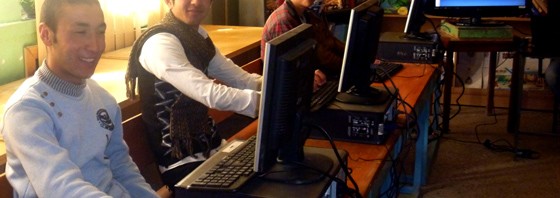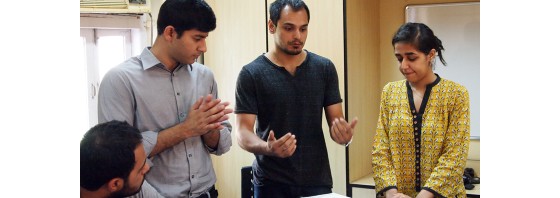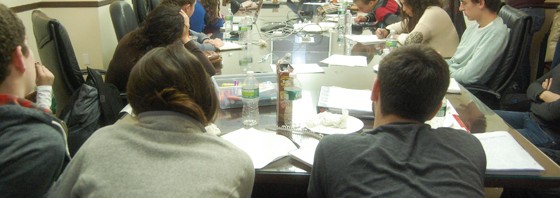KABUL | The Internet Training Course, a Seed Ventures project developed and led by Shapoor, a 2009 Afghan Seed, launched at the Ghulam Haidar Khan High School in Kabul on Saturday, March 17. Over 250 teachers, participants in an Afghanistan Ministry of Education training seminar at the high school, were present to witness the launch.
Access to the Internet is rare in Afghanistan and its general absence from learning environments leaves a void in students’ ability to access information about other countries and cultures. Many schools in Kabul lack both computers and pertinent curricula.
“The students in our schools are limited with what they read in textbooks,” said Shapoor. He aims to combat the knowledge deficit by providing over 300 Kabul public school students with workshops over the course of the next six months during which they will learn how to use the Internet as an educational resource—as a way “to learn, search and communicate.”
In addition to increasing technological awareness and facility among Kabul youth, the Internet Training Course will also provide substantial leadership opportunities; while the first workshop will be conducted by a professional, subsequent workshops will turn one session’s students into the next session’s teachers.
Shapoor purchased three computers and accompanying equipment for the Internet Training Project with funding that he was awarded after a Seed Ventures competition in which he had to demonstrate the potential impact and fiscal responsibility of his plan in a written application as well as in front of a panel. Sayed Taheri and Nasradin Afzali, two of the panel members who approved the funding for Shapoor’s project, attended the launch.
Seed Ventures, a program partnership between Seeds of Peace and Ashoka’s Youth Venture, provides social entrepreneurial training to Afghan, Indian, and Pakistani Seeds, giving them the tools and resources needed to develop innovative, effective approaches to societal issues.
Ghulam Haidar Khan High School Principal Asadullah Kohistani introduced Seed of Peace to the training seminar participants in the audience, commending the work the organization has done in support of education in Afghanistan, and thanked Shapoor for implementing such an important project at the school.
Afghan officials are currently considering ways in which new technology can be incorporated into the national curriculum, and The Internet Training Project, Khohistani said, was laying important groundwork.
“I think this is a great start for introducing the new technology into Afghan schools,” said Wali Arian, Director of Afghan Programs for Seeds of Peace. “The project was introduced to more than 250 teachers … and I am sure they will take this subject seriously for their own schools as well.”
Shapoor agreed. “I hope one day all schools in Afghanistan will have this subject as part of their educational curriculum.”



 I can’t claim credit for such sage foresight—chalk it up to advice from my dad. In high school, I had no idea what I wanted my career path to look like. I found it unfair and constricting that we had to choose so early. My social conscience was strong but vague; I knew I wanted to do “good,” but didn’t know how. Volunteering had always been a big part of my life, and with that, I’d come to see that good intentions aren’t enough to make real impact. My dad is an entrepreneur. His advice: “get a good head for business on your shoulders so you can enter the non-profit sector and actually be competent and effective.” As a suburban high school hippie who, at the time, saw all corporations as part of the evil empire, this made sense to me.
I can’t claim credit for such sage foresight—chalk it up to advice from my dad. In high school, I had no idea what I wanted my career path to look like. I found it unfair and constricting that we had to choose so early. My social conscience was strong but vague; I knew I wanted to do “good,” but didn’t know how. Volunteering had always been a big part of my life, and with that, I’d come to see that good intentions aren’t enough to make real impact. My dad is an entrepreneur. His advice: “get a good head for business on your shoulders so you can enter the non-profit sector and actually be competent and effective.” As a suburban high school hippie who, at the time, saw all corporations as part of the evil empire, this made sense to me.
